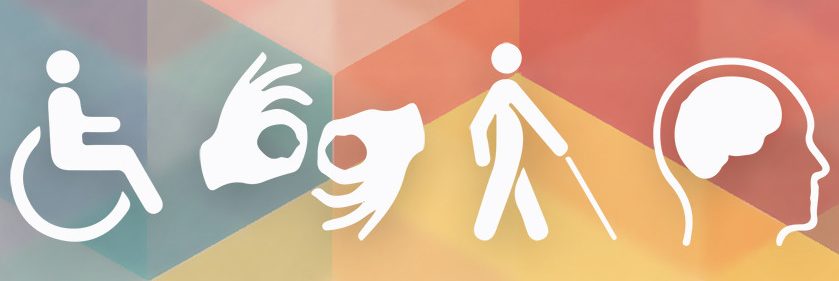As numerous sources warn of the impending climate change catastrophe, people across the world are exercising their power as citizens and attempting to effect change in their communities and beyond. There is a heightened awareness about the necessity to curb climate change in a way that feels more visceral than the slogans of generations before.
Environmentalism is becoming mainstream, and one example of this is the move to ban straws. Hardly a fringe cause, the plastic straw ban has garnered the support of citizens, countries and corporations alike. For instance, nations like Taiwan and Scotland and multinational firms like McDonald’s and Starbucks have announced their intention to reduce, replace or do away with the single-use plastics entirely.
However, the movement to ban the use of plastic straws has met with rightful protest from disability rights activists and people with disabilities (PWDs),[1] who assert that many PWDs need to use these straws in order to drink liquids. For people with cerebral palsy, muscular dystrophy and other conditions that impair their mobility, having a plastic straw enables them to drink beverages more easily or even at all. Without the use of plastic straws, some PWDs might be unable to drink, without the help of special eating tools to accommodate their disabilities.
Although some environmental activists have proposed the use of other kinds of straws, like compostable paper straws and reusable metal straws, these materials have their drawbacks as well. For instance, paper straws may disintegrate quickly, posing a choking hazard. Reusable straws may need to be washed frequently, which is not something that all PWDs can do. Silicone straws are inflexible, while metal straws conduct heat and are too hard, posing a safety risk.
Already, PWDs are forced to compensate for a world that was built for able-bodied people, with few considerations for the specific needs of PWDs. From wheelchair-inaccessible buildings to videos or films with no closed-captioning, PWDs have to overcome many challenges that able-bodied people take for granted. A ban on plastic straws adds to their already-burdened load.
While plastic straws are labelled by some environmentalists as wasteful, for many PWDs, it can mean the difference between being able to participate fully in society and being isolated. Although it may seem like a minor issue to pack reusable or compostable straws, it is another item in a long list of problems to pre-empt as a PWD.
Yet, the environmental movement and the disability justice movement do not have to be at odds with each other, nor should they be. PWDs are some of the most vulnerable when it comes to natural disasters and pollution. As such, they have an increased stake in mitigating and preventing the worst of climate change.
Furthermore, PWDs are not voiceless victims, and disability rights activists have championed causes like better public transport networks and environmental regulation, because PWDs are among the people most affected by the ill-designed public transport systems and the worst effects of environmental degradation.
Most importantly, climate change affects us all, and individual changes might not be enough to reverse the effects of climate change. This does not mean that we should give into despair, but rather consider the systemic problems that cause climate change. Much of the focus on sustainability has been directed towards individual changes, like recycling, consuming fewer resources and taking different modes of transport, for instance.
However, these do not address the systemic problems of fossil fuel reliance, the influence of oil companies, and the extractive practices of many multinational corporations. The combined impact of these factors far outweighs the impact of using reusable straws, which form only 4% of total plastic waste.[2]
In order to combat the worst effects of climate change, we need to ensure that sustainability does not mean exclusivity. There are solutions that we can work towards that would benefit whole societies, like reducing our collective reliance on fossil fuels by insisting on cleaner, alternative forms of energy like wind or solar power. Organisations like Students Taking Action for NUS to Divest (STAND) are urging the university to divest its investments in fossil fuels in order to accelerate the transition from fossil fuels to renewable forms of energy, eventually culminating in a zero-emission economy.
In addition, social movements of different stripes can also work together in effecting change on a macro level, like pushing for the creation of green jobs, improving public transport networks and pushing for stricter environmental regulations on pollution and waste disposal.
Is this to say that individual changes are unnecessary? Not at all. For someone, getting rid of straws in their life may cause them to re-evaluate their lifestyle. They might get more involved in environmental causes, cut down on international holidays and begin taking public transport. However, these individual changes may not be possible for everyone.
Sustainability needs to include in order to be effective, and the environmental movement needs to consider the barriers to leading a sustainable lifestyle. For instance, instead of a complete ban of plastic straws, some establishments have promised to offer plastic straws to customers who request them. Incorporating the needs of PWDs into our vision of sustainability can only strengthen the movement, not detract from it.
______________________
[1] In this article, I’ve chosen to use first-person language. However, as people with disabilities are not a monolith, some may prefer to be called disabled people instead. For more on this topic, you can read the essay “Why I Don’t Use People First Language: A Brief History of My Relationship with the Language and Disability”.
[2] https://www.theguardian.com/business/2018/jul/09/starbucks-eliminate-plastic-straws-globally-2020
___
Header image: http://dastornews.com/2018/03/like-im-normal-weird-disabled-life
Featured image: https://www.pexels.com/photo/drink-colorful-color-tube-65612
___
About the author
Erica enjoys animated films, comedies and podcasts about humanism. In her spare time, she can be found listening to Zayn Malik’s music.





